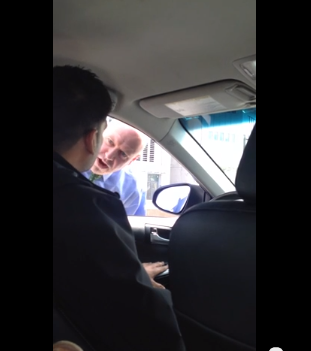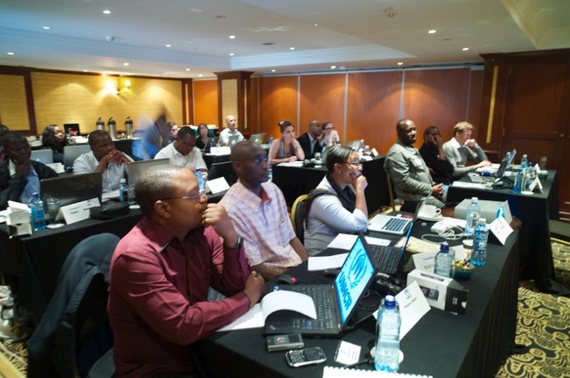Yesterday, a New York City cop made the mistake of cursing out an Uber taxi driver while his passenger recorded the whole thing on video.
This was a big mistake, because today he was removed from his job on the 'Terrorism Task Force'.
A big mistake.
In a way, I feel sorry for the cop.
(Well, not THAT sorry).
But he is old. He grew up in an era when creating video and 'broadcasting' it was something special, expensive and complicated. People like 60 Minutes did it. And you knew when 60 Minutes was recording. After all, they had a big crew of like a dozen people, with lights, and microphones and Mike Wallace. When you saw Mike Wallace, you knew it was time to shut up. Mike Wallace was a 'journalist'. 60 Minutes was a TV news show. You knew where you were.
No more.
Now, the passenger in the back of the Uber taxi was Mike Wallace and his crew. Of course, all he had was an iPhone. It was all he needed. It is all anyone needs to become Mike Wallace.
If Detective Patrick Cherry had looked in the back seat of the Uber taxi and seen Mike Wallace, I bet he would not have gone off the deep end like that. What Detective Cherry didn't know (but does now) was that Mike Wallace WAS in the back seat of the taxi. And the front seat. And in every car he pulls over (if he ever is allowed back on the street again, which is doubtful).
Let's call it, The Law of Unintended Consequences.
When journalists (some journalists - the more 'progressive' ones) look at an iPhone (or a smart phone), they say, "Hey, I can use this thing to 'report' for TV or online video all by myself!" And some do. And, of course, it works. (This, by the way, does NOT make professional cameramen and women very happy at all!)
What those journalists don't seem to figure out is, if they can do that, so can anyone else. At least any of the 3 billion people who have smart phones already.
And why not?
For the past few years, we have been training field operatives from UNHCR, that would be the United Nations High Commissioner for Refugees, to shoot and edit and upload and share with the world their own videos.
UNHCR deal with refugees worldwide, and there are lots of them. And the brave men and women of UNHCR spend years in some of the most dangerous places in the world - places like Syria or Mali or Darfur. They live there. They are on the ground. They work there. They know the story.
For many years, organizations like UNHCR begged people like The BBC or CNN or NBC News to 'please' send a reporter and crew to see what is happening here. Every once in a while, (rarely), those major 'news' organizations would do that. They would send a 'reporter' who flew in, who knew next to nothing about what was going on, but who would soon be 'reporting' back to their viewers on what was happening. (Get the idea?)
So a few years ago, we got the idea to simply empower the UNHCR people who were already on the ground, who spoke the local language, who knew the story inside and out, who lived it every day - to tell their own stories in video and share them with the world. Using iPhones.
So for the past few years, we have been training and equipping more than 165 UNHCR operatives around the world with iPhones and laptops for editing and uploading. Telling stories that are important.
Sort of like the guy in the back of the Uber taxi.
Except, perhaps, a bit more important.
Are you starting to get the idea here.
This is what we call 'The Law or Unintended Consequences"
So maybe iPhones are not just to let radio reporters make video.
More likely, iPhones let people who have a story to tell - a story they consider important - create it in video and share it with the world.
Sort of cutting out the 'middle man'.
That would be the 'reporter'.
Get the concept?


